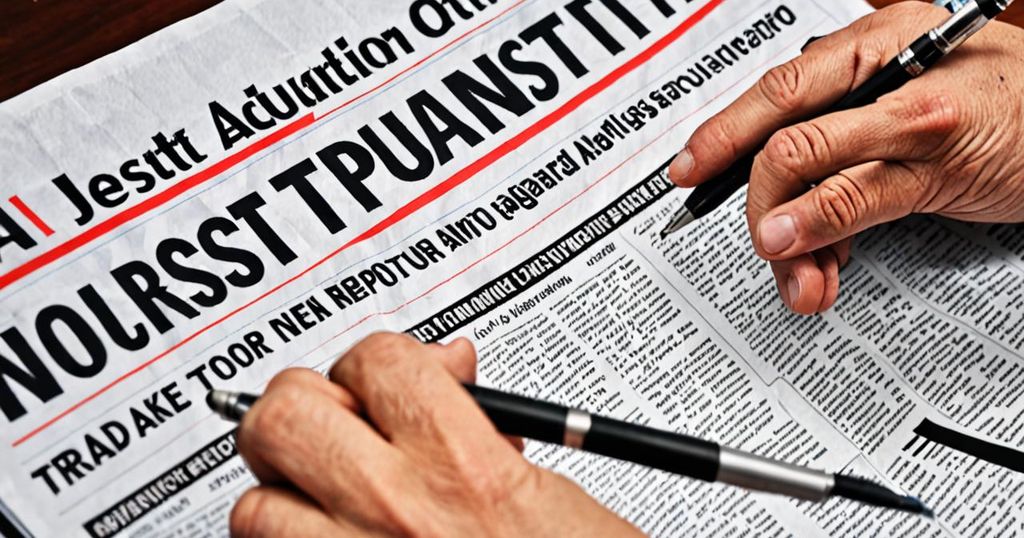The Jakarta chapter of the Alliance of Independent Journalists (AJI Jakarta) has announced strong disapproval towards the act of revealing personal information, known as doxing, of a journalist who reported on the escalating trade between Indonesia and Israel. Accusing the journalist of disseminating false information, a social media influencer urged their followers to attack the journalist and discredit her work. The influential individual, Erlangga Greschinov, publicly shared a screenshot of an article written by journalist Ni Luh Anggela in Bisnis Indonesia, which outlined a remarkable 1,204 percent increase in Indonesia’s imports from Israel. The article was based on data from Statistics Indonesia (BPS) in May of this year, revealing a considerable surge in imports of Israeli machinery, electronic devices, and organic chemicals.
Erlangga contested the data presented in the article, alleging that it was unavailable on the BPS website. He then disclosed Anggela’s LinkedIn profile, insinuating that she should be dismissed from her job if the alleged fabrication was proven true. A check by The Jakarta Post on the BPS website confirmed that the information on Indonesia’s import value from Israel was accessible until April of this year. However, the website is routinely updated at the end of each month, and journalists can request the most recent data directly from the BPS.
In response to this incident, AJI Jakarta released a statement condemning the doxing of the journalist. The association stressed the significance of filing press-related complaints through established legal channels such as the Press Council. AJI Jakarta affirmed its stance against any form of intimidation or harassment directed at journalists and media organizations who are executing their professional duties.
This incident highlights the inherent risks and challenges confronted by journalists in the digital age, where the spread of information can be weaponized to tarnish the credibility and integrity of reporters. Doxing not only violates an individual’s privacy, but also jeopardizes the safety and well-being of the targeted person. It has a chilling effect on press freedom and serves as a deterrent to journalists from conducting thorough and independent reporting.
The standards and ethics of journalism play a critical role in shaping public discourse and upholding democratic values. The act of doxing undermines the principles of fairness, accuracy, and accountability that form the foundation of ethical journalism. It is imperative for individuals and organizations to actively support the protection of press freedom and denounce any attempts to intimidate or silence journalists.
As citizens, we bear the responsibility to engage critically with the information presented to us and hold media outlets and journalists accountable for their reporting. By promoting transparency and respecting the rights of journalists to carry out their work without fear of reprisal, we contribute to the preservation of an open and democratic society.
In conclusion, the practice of doxing and the dissemination of false information pose significant threats to the integrity of journalism and the democratic fabric of our society. Upholding the values of press freedom, ethical reporting, and professional conduct is essential in safeguarding the public’s right to access accurate and reliable information. It is incumbent upon us to reject acts of intimidation and harassment directed at journalists and to foster an environment where the press can fulfill its vital role as a watchdog and a purveyor of truth.

Leave a Reply